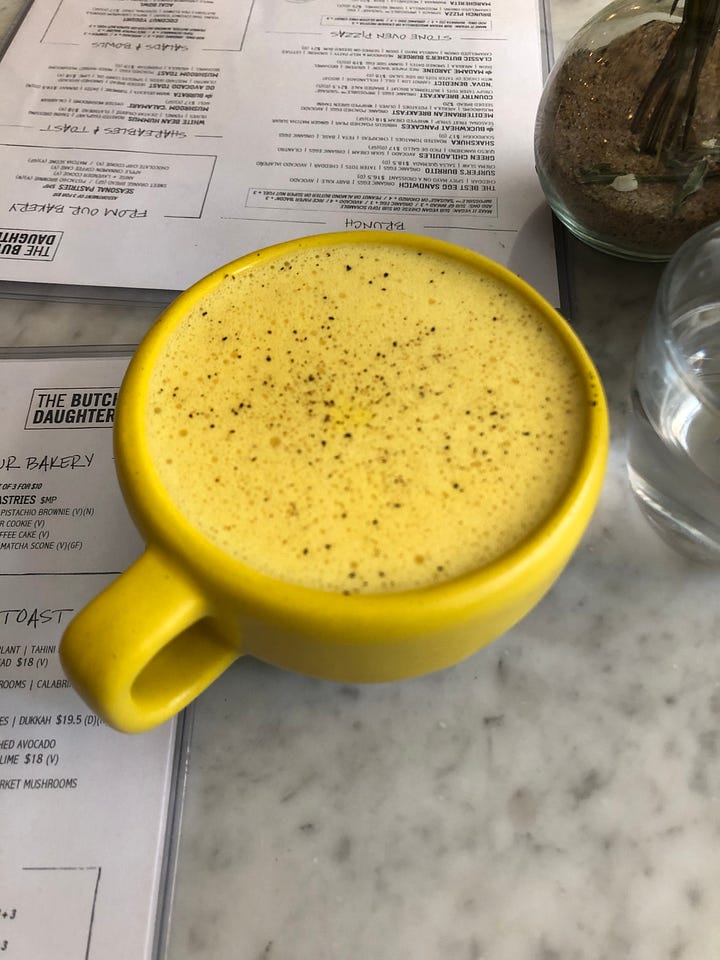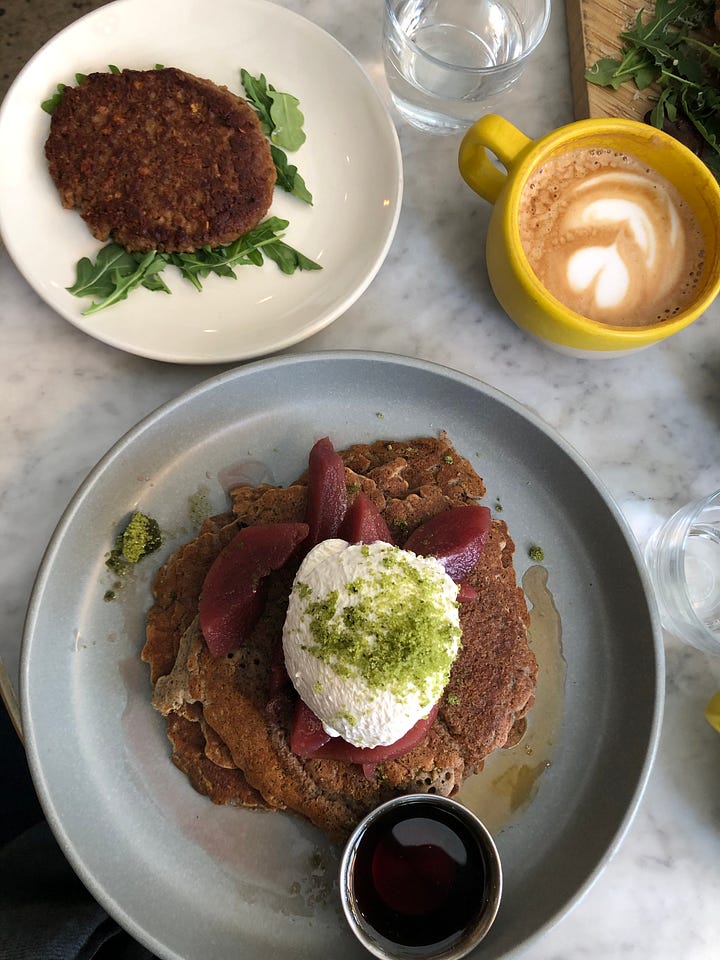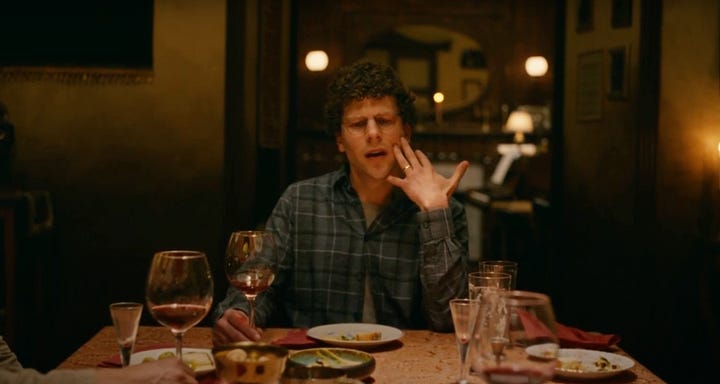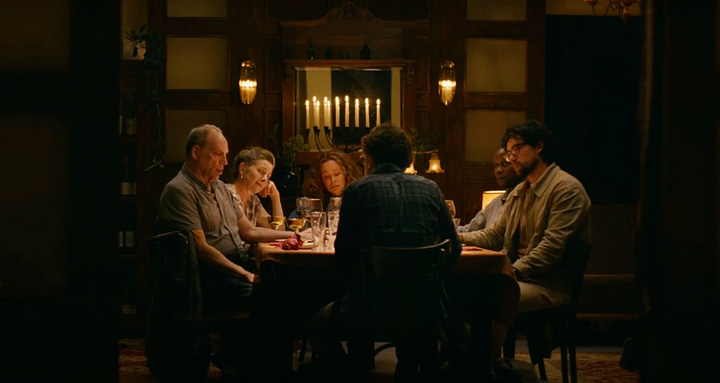Hi close friends,
I missed you last week! Life has been life-ing a little too hard lately, so I decided to take last Friday off.
Activities from last week included: crying to my parents on the phone (they made me feel a lot better 💗), trying out one of the new seasonal Valentine’s themed drinks at Gregorys Coffee (espresso + mocha + strawberry), and finally watching Anora (it lived up to the hype!).
Activities from this week include: watching Kendrick Lamar’s performance at the Super Bowl on repeat (what a great way to use this particular national stage), signing up for more ballet classes (f*** it, we ball), and listening to a conversation on creative non-fiction between Harvard artist-in-residence,
, and author (brought to my attention by fellow writer, )1. They ended the Q&A portion with the thought that writers (and people in general) often ask themselves, “Do we deserve to be here? And do we deserve to be heard?” which is not only a banger way to go out, but very much relates to today’s topic at hand.

As I mentioned in my last letter, I’ve been making my way through some of the Oscar-nominated films, one of them being A Real Pain (2024).
Written and directed by Jesse Eisenberg, the movie follows cousins David (Jesse Eisenberg) and Benji (Kieran Culkin) on a Holocaust tour in Poland gifted by their recently passed grandmother who had lived there. The premise is simple, but effective. The two explore the effects of their grief and complicated relationship with each other against the backdrop of their family history and generational trauma. They seek answers about their own pain: whether they deserve to claim it, how useful it is, and ultimately, how they both decide to deal with it. The journey for both them and the audience is dawdling, silly, depressing, and deeply sensitive.
From the jump, Benji is spontaneous, charming, and a little out there. He wields a certain power over David in how easily he expresses his wants and needs honestly, leaving an impression on the rest of the tour group without even trying. David on the other hand is much more measured, responsible, and anxious about any lines Benji crosses along the way, always cognizant of the time and place, both literally and emotionally.
At one point on the tour, the group gets to ride first class on a train and Benji feels uncomfortable, ranting to them about how privileged they are in a way their ancestors were never allowed and takes a stand by moving to the back of the train. At another, while looking at tombstones of those who have passed away, he challenges the tour guide leader to stop listing fact after fact and take a moment to remember the people he’s talking about aren’t just stories, but actual humans. Multiple times, he shakes David, asking him what happened to him to become so uptight, and confesses to the group that David used to cry all the time as a child and feel things deeply.
Moments like these offer our characters the space to ponder aloud how desensitized we’ve become to pain in our privilege and distance, whether that’s the pain of our forebears or others around us. The starkness of this gap is exposed when at the boys’ last stop of the trip, a detour to their grandmother’s original home, they have a funny exchange with the current neighbors while attempting to pay their respects. The scene reminded me a lot of trips visiting my extended family home in India, feeling distinctly out of place even though I was tied there by blood. It begs the question, how do you honor memories, heritage, and people as life continues to move on around and without you?


At a dinner with the tour group at a restaurant, with Benji gone from the table, David’s composure cracks. We learn more about Benji’s history of mental health, how that pain affects David’s life in trying to support his cousin, and the demons David himself wrestles with everyday that he suppresses through various tactics like western medicine, meditation, going to work every day, and for lack of a better phrase, sucking it up. He weighs up his own pain, calling it decidedly “unexceptional,” something he tries not to burden others with, and yet it still exists all the same.
Benji and David are two sides of the same coin, their sadness manifesting in different shades and in constant relation to each other. We leave A Real Pain, in the same way it began, with Benji at the airport observing the world and people that pass by him, unknowing of the pain that lies underneath.
Hope everyone has a lovely Valentine’s Day! I’m excited to spend mine eating takeout and watching the new season of Love Is Blind.
Till next time. xoxo
According to the event description, there will be more talks in the series available for the public to watch via Zoom, so keep an eye out! They did record the meeting as well, so it may get posted on their page/socials at some point.




